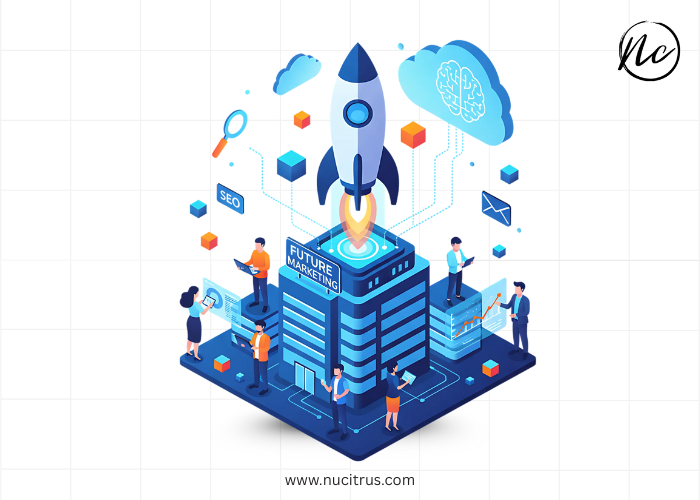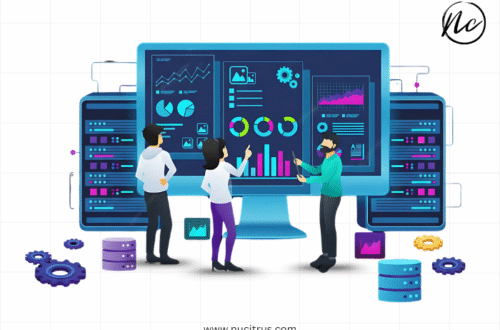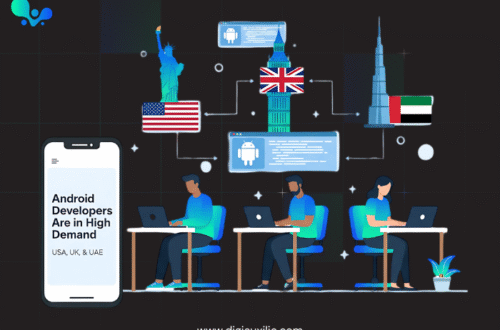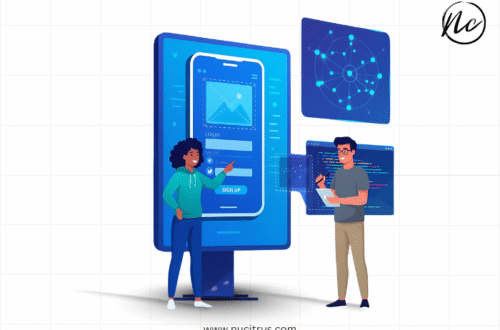Business growth today hinges on the ability to combine creativity, strategy, and technology. Marketing is no longer just about aesthetics or catchy slogans—it’s about leveraging cutting-edge tools, platforms, and data-driven insights to achieve measurable results. A future-ready digital marketing company uses technology to optimize campaigns, improve customer engagement, and drive sustainable growth.
Why Technology-Driven Marketing Matters
Modern consumers are more connected, informed, and selective than ever. They no longer respond to generic campaigns—they expect personalized, meaningful interactions. Technology enables businesses to deliver such experiences at scale.
From AI-powered analytics and automation to immersive content formats like AR and VR, tech-driven marketing allows companies to:
- Analyze customer behavior in real time
- Automate repetitive tasks while maintaining personalized messaging
- Enhance brand engagement with interactive campaigns
- Scale strategies efficiently across markets
Data-backed decision-making reduces guesswork, improves efficiency, and maximizes return on investment. Companies that adopt technology-driven marketing strategies can respond to trends faster and maintain a competitive edge.
Growth Through Strategic Thinking
Many campaigns fail because they focus solely on surface-level metrics such as clicks or impressions. Growth-focused marketing, however, prioritizes strategy. It begins with market research, competitor analysis, and a clear understanding of target audiences.
The goal is not simply to drive traffic—it’s to convert traffic into loyal customers. Every marketing activity should align with larger business objectives, whether increasing brand awareness, boosting online sales, or cultivating long-term customer relationships.
Key growth-focused strategies include:
- SEO & Content Marketing: Establishing organic visibility and brand authority.
- Paid Media Optimization: Ensuring ad budgets deliver measurable returns.
- Conversion Rate Optimization (CRO): Turning website traffic into concrete outcomes.
- Analytics & Reporting: Continuously monitoring performance and identifying new opportunities.
Integrating technology across all these areas transforms marketing campaigns from one-off efforts into scalable growth engines.
Innovation as a Driving Force
Innovation is about more than using the latest tools—it’s about discovering smarter ways to solve challenges and create value. Future-ready marketing continuously experiments, iterates, and adapts to changing consumer behavior.
For example:
- AI chatbots provide 24/7 customer support while gathering behavioral insights.
- Predictive analytics anticipate buying trends and optimize campaign timing.
- Interactive content, such as quizzes, polls, or AR try-ons, improves engagement while collecting actionable data.
By embracing innovation, businesses can maintain a competitive edge and offer experiences that resonate with modern consumers.
The Critical Role of Data
Data is often referred to as the backbone of modern marketing. Collecting and interpreting data from multiple channels—search, social media, email, and websites—enables companies to focus on meaningful outcomes such as conversions, revenue growth, and customer lifetime value.
Effective data utilization allows businesses to:
- Identify high-performing content and replicate successful campaigns
- Understand customer journeys and refine targeting
- Reduce ad spend wastage by prioritizing proven channels
- Forecast trends and prepare proactive marketing strategies
This ensures that marketing efforts are both creative and accountable, delivering results that align with business objectives.
Tailored Strategies for Different Industries
Every business faces unique marketing challenges. E-commerce brands need strategies to drive product discovery and reduce cart abandonment. B2B companies may focus on lead nurturing and managing longer sales cycles. Tailored marketing solutions allow companies to apply technology where it matters most.
Examples include:
- E-commerce: AI-based product recommendations, dynamic remarketing, and cross-channel campaigns.
- Startups: Lean marketing models, influencer collaborations, and rapid brand positioning.
- Enterprises: Scalable SEO, reputation management, and global campaign execution.
Customization ensures that technological innovation is practical and produces tangible results for businesses of all sizes.
Integrating Across Multiple Platforms
Customers interact with brands through multiple touchpoints—from search engines and social media to apps and email. A future-ready marketing approach integrates all platforms into a cohesive ecosystem.
For instance, a user who clicks on a search ad may receive a personalized email, encounter a retargeting ad on social media, and engage with a chatbot on a website. These interconnected touchpoints create a seamless experience, increasing the likelihood of conversion.
Automation for Efficiency and Precision
Automation is a cornerstone of tech-driven marketing. By automating repetitive processes such as email follow-ups, social posting, and ad bidding, businesses can focus on strategic tasks while maintaining consistency. Automation also ensures timely engagement with leads, enhancing the customer experience.
AI-powered tools further allow companies to personalize campaigns at scale, delivering the right message to the right audience at the optimal moment. This combination of automation and intelligence drives efficiency while maintaining a human-centered approach.
Focusing on Customer Experience
Technology enables marketers to deliver highly personalized experiences that resonate with users. From AI-driven product recommendations to dynamic content that adapts based on user behavior, companies can provide meaningful interactions that build trust and loyalty.
By prioritizing customer experience, businesses can:
- Increase retention and repeat purchases
- Strengthen brand reputation
- Build long-term customer relationships
A seamless and engaging customer journey is no longer optional—it’s a necessity for businesses aiming to thrive in a competitive market.
Continuous Optimization and Learning
Future-ready digital marketing is iterative. Campaigns are constantly monitored, analyzed, and refined based on performance insights.
Key optimization practices include:
- A/B Testing: Experimenting with different messaging, layouts, or offers to identify what works best
- Real-Time Analytics: Quickly adjusting campaigns based on live data
- Cross-Channel Insights: Using learnings from one platform to improve performance on others
Continuous optimization ensures marketing efforts are always aligned with audience needs and business goals, reducing waste and improving ROI.
Measuring Success Beyond Metrics
True success in marketing goes beyond clicks and impressions. Growth-focused strategies measure outcomes in terms of revenue, customer acquisition, and lifetime value. This results-oriented mindset shifts the focus from vanity metrics to meaningful performance indicators.
Businesses that prioritize measurable impact can allocate resources more effectively and scale campaigns confidently, knowing each effort contributes to overall growth.
Preparing for the Future
The digital ecosystem is constantly evolving. New technologies, platforms, and consumer behaviors emerge regularly, requiring companies to stay agile. Future-ready marketing is proactive rather than reactive, anticipating changes and adapting strategies accordingly.
Some emerging trends shaping the future of digital marketing include:
- Voice search optimization for smart devices
- AI-generated content and automated creative design
- Immersive experiences with AR/VR and interactive media
- Enhanced privacy-first marketing and data compliance
By staying ahead of these trends, businesses can maintain relevance and continue driving growth in an ever-changing environment.
Conclusion
A future-ready digital marketing company combines strategy, creativity, and technology to deliver meaningful, measurable results. Growth is achieved through data-driven decisions, innovative approaches, seamless integration, and a relentless focus on customer experience.
Marketing is no longer a series of disconnected campaigns—it’s a cohesive, tech-powered growth engine that drives business success. Companies that embrace this approach can optimize performance, adapt to change, and stay ahead of the competition.
The future belongs to businesses that are ready to leverage technology, innovate continuously, and create strategies that not only attract attention but also build long-term value. A future-ready marketing approach ensures that growth is sustainable, scalable, and aligned with the evolving needs of customers.




